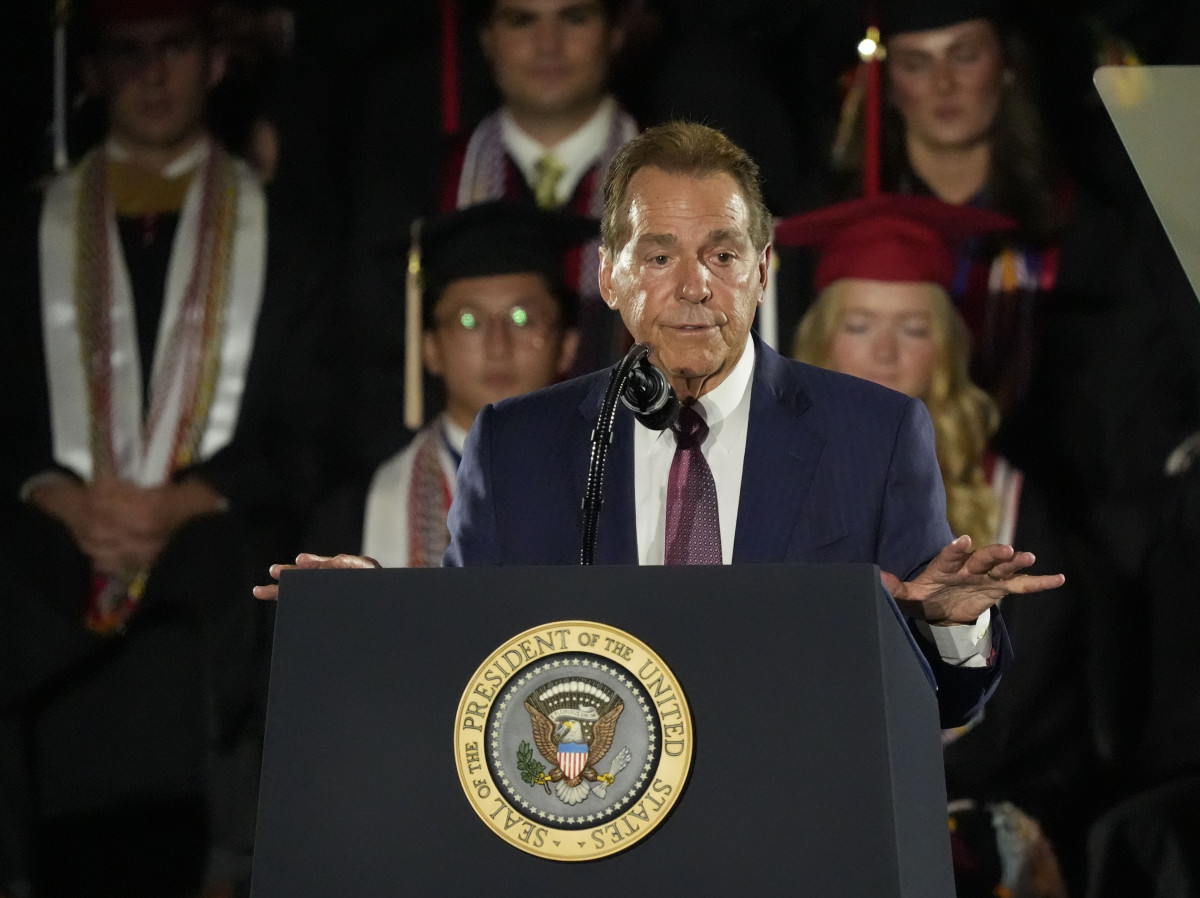In a significant development within collegiate sports, President Donald Trump is contemplating the formation of a federal commission aimed at addressing pressing issues in college athletics. This initiative comes in the wake of a notable move by former Alabama football coach Nick Saban, who has emerged as a vocal advocate for reforming the Name, Image, and Likeness (NIL) landscape. Saban’s involvement in this endeavor underscores the growing intersection of sports, politics, and policy-making in the United States.
The proposed commission seeks to tackle several critical concerns within college sports, including the regulation of NIL deals, the transfer portal, unregulated booster payments, Title IX compliance, and the preservation of Olympic sports. Texas Tech Board of Regents Chairman Cody Campbell and Nick Saban have been identified as potential co-chairs for this commission. Their appointment reflects a bipartisan approach to addressing the challenges facing collegiate athletics.
Nick Saban’s advocacy for NIL reform has been a central aspect of his post-coaching career. He has consistently expressed concerns about the current state of college athletics, particularly regarding the lack of uniformity in NIL regulations across states. Saban has emphasized the need for a standardized approach that ensures fair competition and protects the integrity of college sports. His endorsement of revenue sharing among college athletes, without classifying them as employees, aligns with the objectives of the proposed commission.
The potential issuance of an executive order by President Trump to regulate NIL payments further highlights the administration’s commitment to addressing the complexities of college athletics. This move reflects a broader recognition of the need for federal intervention to establish consistent guidelines and prevent the emergence of a “pay-for-play” system that could undermine the educational values of collegiate sports.
While the formation of the commission and the consideration of an executive order represent significant steps toward reform, challenges remain. The ongoing litigation stemming from the House v. NCAA case, which involves a $2.8 billion settlement proposal, underscores the complexities of implementing comprehensive changes. Concerns over roster limits and the displacement of athletes have delayed final approval of the settlement, highlighting the need for careful consideration of all stakeholders’ interests.
Nick Saban’s involvement in these discussions has not been without controversy. Critics argue that his influence on policy-making could disproportionately benefit programs with substantial financial resources, potentially exacerbating existing disparities in college athletics. However, Saban maintains that his primary concern is the long-term sustainability and integrity of college sports, advocating for reforms that promote equity and fairness across all institutions.
As the White House explores candidates for the proposed sports commission, the convergence of sports leadership, political will, and legal considerations will play a pivotal role in shaping the future of college athletics. The outcomes of these deliberations will have lasting implications for student-athletes, institutions, and the broader landscape of collegiate sports.
In conclusion, the potential establishment of a federal commission on college sports, coupled with Nick Saban’s active involvement in advocating for NIL reform, marks a critical juncture in the evolution of collegiate athletics. The intersection of sports and policy-making presents an opportunity to address longstanding issues and ensure that college sports continue to serve the best interests of student-athletes and the integrity of the competition.



